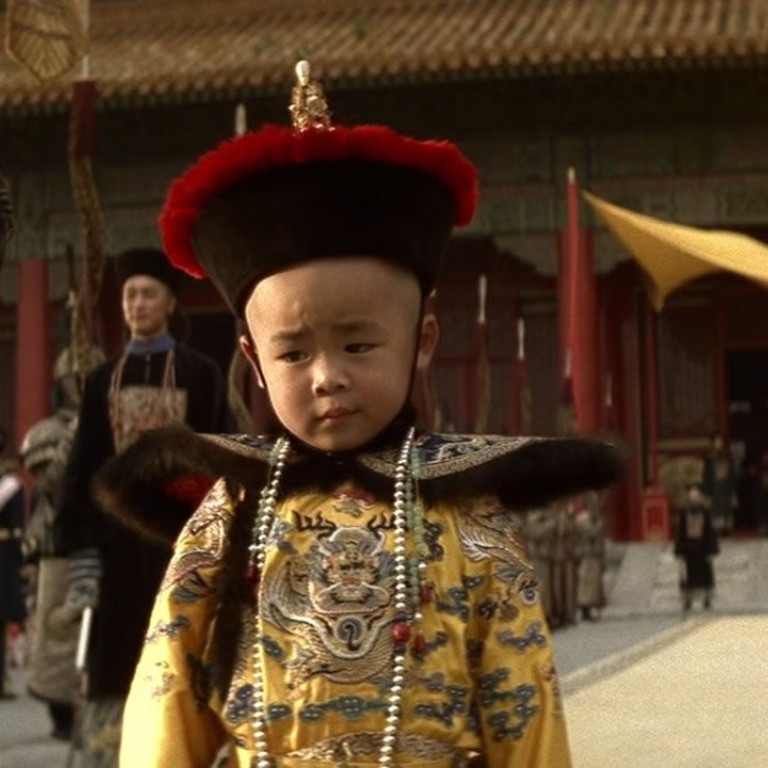
Filmmakers seek box office boom with Chinese co-productions, but success is not guaranteed
From Hollywood and France to South Korea and Japan, international filmmakers are keen to team up with those in China, but mixed results show unpredictability of mainland audiences and administrators
The Chinese Film Panorama 2018 festival opened at City Hall, in Central, on October 18 with a screening of Where Has the Time Gone?. The 2017 omnibus feature comprises five shorts by filmmakers from BRICS countries – Brazil, Russia, India, China and South Africa. The next evening, the festival continued with Bernardo Bertolucci’s 1987 epic The Last Emperor, followed on October 21 by contemporary romantic comedies A Wedding Invitation (2013) and 20 Once Again (2015).
These seemingly unrelated movies are all co-productions, a form of filmmaking that, according to the festival’s co-organisers, the Leisure and Cultural Services Department and the South China Film Industry Workers Union, “laid a vital foundation in the globalisation of China’s film industry”.
China to be world’s top film market ‘in short order’, Hollywood says
According to the programme notes, for example, “the full backing of China and a team of the finest craftsmen in the industry” was deemed crucial to the making of The Last Emperor, with the international cast of John Lone, Joan Chen and Peter O’Toole described as “a match made in heaven”.
This emphasis on collaboration has proved topical, with the programme unspooling just as Beijing contends with a trade war against the United States and a wave of cancellations of Chinese-backed mega-projects in Malaysia, Pakistan and Sierra Leone.
International film co-productions have always been about business. And it’s tricky business, too, with a lot of money and national pride at stake. Chinese financiers and bureaucrats and their foreign counterparts are constantly entangled in a difficult dance to get the best deal for themselves.
For example, Hollywood studios have been hard at work trying to convince Chinese officials to review the terms set in a memorandum of understanding signed by then Chinese vice-president Xi Jinping and his US counterpart, Joe Biden, during the former’s visit to Los Angeles in February 2012.
According to the agreement, 34 foreign films (in reality, mostly Hollywood blockbusters) could be imported into China every year, with their producers entitled to a maximum of 25 per cent of box-office earnings in the country. The terms would be up for review after five years. More than a year has passed since that cut-off date, and negotiations between Washington and Beijing have hit an impasse.
Furthermore, the film apparatchiks are probably preoccupied with changes in their own organisational structure. In March, the long-running State Administration of Press, Publication, Radio, Film and Television was abolished and replaced by the National Radio and Television Administration, which is answerable to the Communist Party’s propaganda department.
It was amid such uncertainty, however, that one of the most successful international co-productions hit Chinese screens.
Shark film ‘The Meg’, engineered for China, is a monster box-office hit
The Meg (2018), starring Jason Statham and Li Bingbing, is a simplistic 21st-century update of Steven Spielberg’s 1975 thriller Jaws that took a huge bite of box-office earnings during its mainland run this summer. A windfall for Warner Bros, which co-owns one of the film’s Chinese financing companies, The Meg’s success – which arrives more than a year after the commercial underperformance and critical mauling of The Great Wall (2016) in China and abroad – is testament to the unpredictability of mainland audiences (and administrators) when it comes to co-productions.
Things have moved on since Xi and Biden sealed the deal. While their Hollywood paymasters fiddle and fret over how to build a more profitable future in China, some stars have circumvented this situation by signing on to films financed solely by Chinese funds. American actors John Cusack and Adrien Brody, for example, fought alongside Jackie Chan in 2015’s Dragon Blade ; British actor and comedian Rowan Atkinson reprised his role as Mr Bean in the Chinese film Top Funny Comedian (2017); and Frank Grillo and Michael Pitt became instant celebrities in China with their turns in Wolf Warrior 2 (2017) and Detective Chinatown 2 (2018), respectively.
According to the China Film Co-Production Corporation, a state-backed body established in 1979 to facilitate collaborations between Chinese and foreign filmmakers, the mainland has signed co-production agreements with 21 countries.
Just as Sino-US co-productions set Hollywood boardrooms abuzz and cinema tills a-ringing, these other agreements have also yielded interesting results. Japan and South Korea have enhanced their cinematic presence in China with remakes of their films, including 20 Once Again (an adaptation of the 2014 Korean film Miss Granny) and last year’s Namiya (based on Keigo Higashino’s 2012 novel Miracles of the Namiya General Store, which was first made into a film in Japan in 2017).
France, meanwhile, made inroads in China years ago when The Nightingale, a Chinese-French family drama directed by Philippe Muyl, was selected as the Chinese entry for the best foreign language film prize at the 2015 Academy Awards.
Since then, Sino-French co-productions of various styles and stripes have emerged. There was The Warriors Gate (2016), a big-budget Luc Besson-produced action film that flopped in the mainland, and mid-budget titles such as Wang Chao’s same-sex romance Looking for Rohmer (2015).
Why French filmmakers struggle for Chinese box office success
Rookie filmmaker Wan Lifang’s Lumière Amoureuse, about a young Chinese woman’s liaisons with a clan of aristocratic vampires in a French castle, finally opened on the mainland last week, nearly a year after being pulled from the release schedule. While hardly likely to set the celluloid world alight, this film – and many other co-productions before and after it – provides a glimpse of the power dynamics at the heart of collaborations between the Chinese film industry and its international partners.
20 Once Again will be screened on November 11 while The Last Emperor and The Wedding Invitation will be showing on November 10 as part of the 2018 Chinese Film Panorama.

